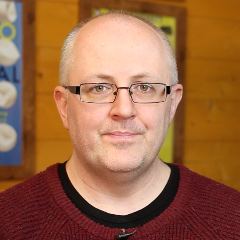You are not currently logged in. Please create an account or log in to view the full course.
Memory Models
- About
- Transcript
- Cite
Memory – Memory Research and Theory
In this course, Dr Dean Burnett (Cardiff University) explores aspects of memory research and theory. In the first lecture, we think about some of the key memory models, including the multistore model of memory and the working memory model. Next, we think about how the nature nurture debate applies to memory, exploring how and why memory differs between individuals. In the third and final lecture, we think about some key methods of studying memory in the laboratory and how that compares in terms of reliability and validity with other forms of memory research. Photo by Jon Tyson on Unsplash
Memory Models
In this lecture, we think about memory models, focusing in particular on: (i) the key functionality of memory in personality and behaviour; (ii) the nature of there being multiple models of memory leading to continued debate in science; (iii) the multistore memory model, which describes memory as a system wherein information from the senses passes through three stages of memory; (iv) the stages of memory in the multistore model being sensory memory, short term memory and long term memory; (v) sensory memory, which has a large capacity but a very short duration; (vi) the phenomenon of ‘change blindness’, whereby it is very difficult to tell the difference between two images if they are presented at different times, due to the very short duration of sensory memory; (vii) the phenomenon that, if attention is interrupted during an interaction, it may not be noticed that the person being interacted with has changed; (viii) short term memory, which has a small capacity and a short, but longer than that of sensory memory, duration; (ix) the ability of short term memory to hold around four ‘things’ in its capacity, often auditory or verbal information; (x) the outdated view that the short term memory can hold seven plus/minus two items in its capacity; (xi) the ‘things’ in the short term memory represented as ‘chunks’, which can be different things/combinations of things, depending on the nature of the memory; (xii) rehearsal of information in the short term memory in order to maintain it and commit it to long term memory; (xiii) the important differentiation between short term memory and working memory; (xiv) long term memory, which has an enormous capacity and duration; (xv) the fact that long term memories are encoded, rather than being processed in a dedicated area like short term memories, the process of which takes around a minute; (xvi) dividing long term memories into explicit/implicit or declarative/non-declarative memories; (xvii) implicit memories that are long term memories without conscious awareness, such a procedural or ‘muscle memory’; (xvii) habits and reflexes as other types of implicit/non-declarative memory; (xviii) explicit memories, which are those that are consciously recalled and can be split into semantic and episodic memory; (xix) a semantic memory being memory for information with no conscious knowledge of its origin, while episodic memory is conscious recall of the details of a specific event; (xx) the working memory model, which proposes that information from different senses is stored and processed separately and simultaneously; (xxi) elements of the working memory model being the articulatory phonological loop, where linguistic information is stored and processed, and the visuospatial sketchpad, where visual information is stored and processed; (xxii) the central executive, which regulates the information in the different stores, according to the working memory model; (xxiii) the episodic buffer, a two-way stage between short and long term memories, which enables information in the short term memory to be ‘worked on’.
Cite this Lecture
APA style
Burnett, D. (2023, September 28). Memory – Memory Research and Theory - Memory Models [Video]. MASSOLIT. https://massolit.io/courses/memory-memory-research-and-theory
MLA style
Burnett, D. "Memory – Memory Research and Theory – Memory Models." MASSOLIT, uploaded by MASSOLIT, 28 Sep 2023, https://massolit.io/courses/memory-memory-research-and-theory

